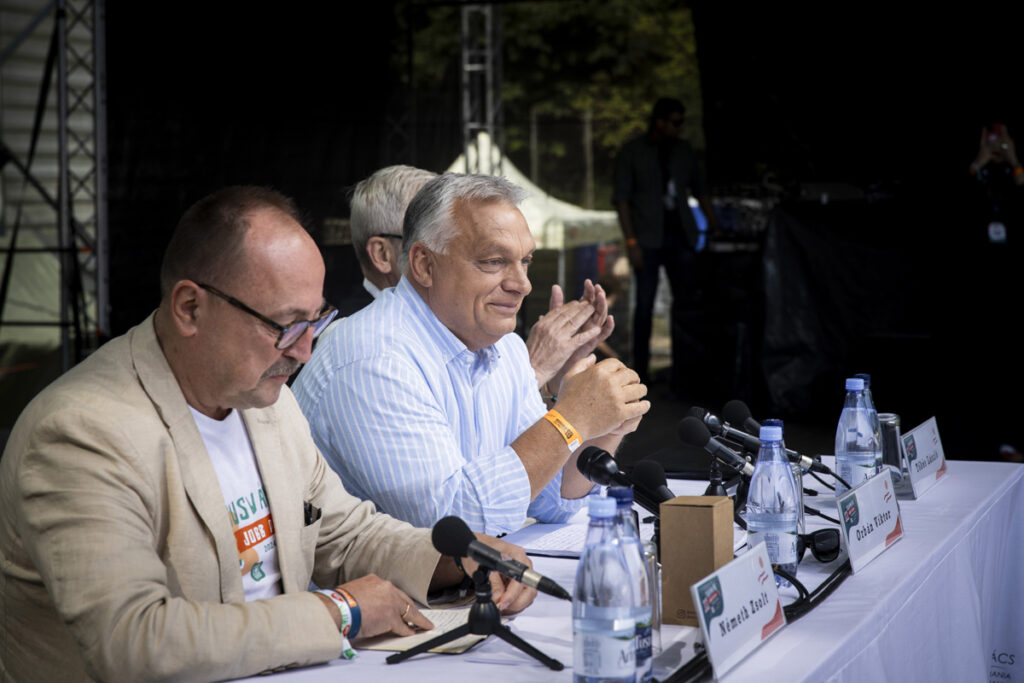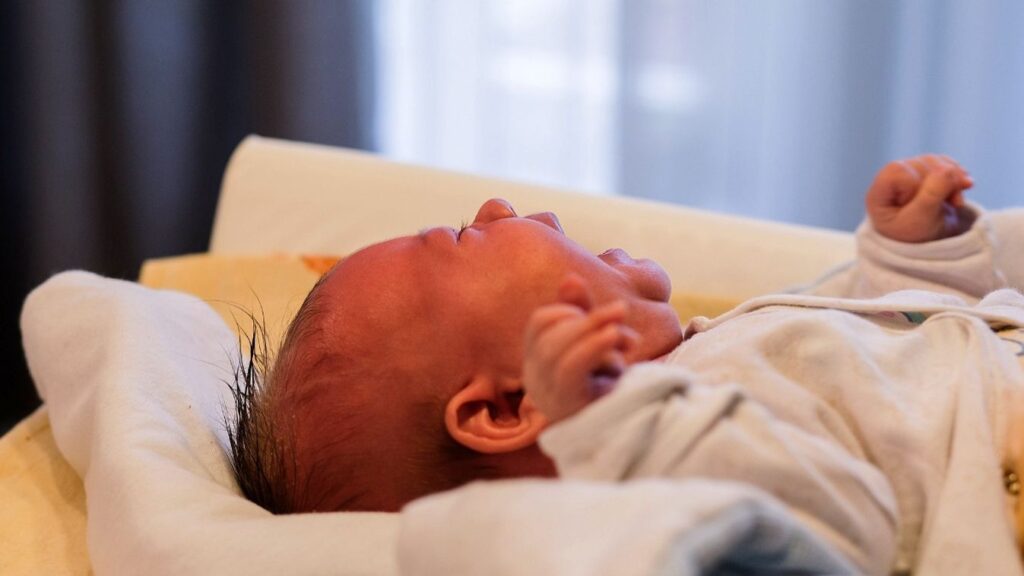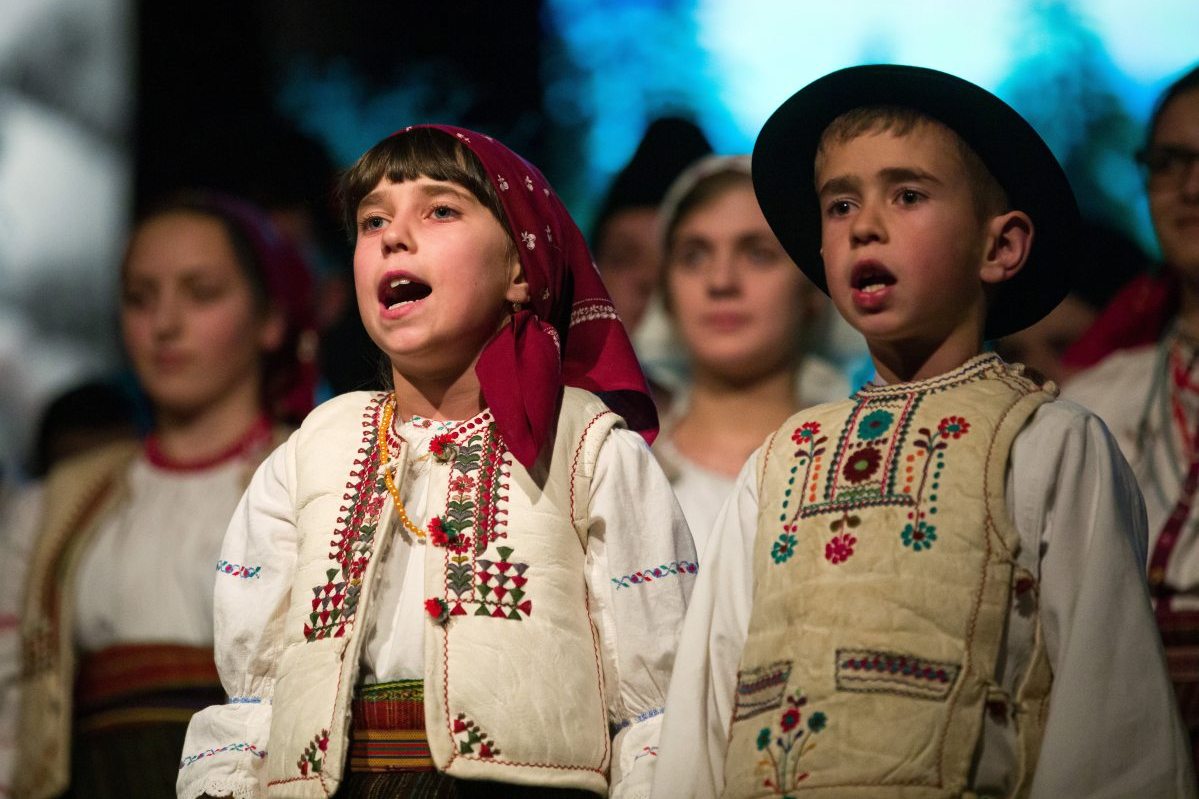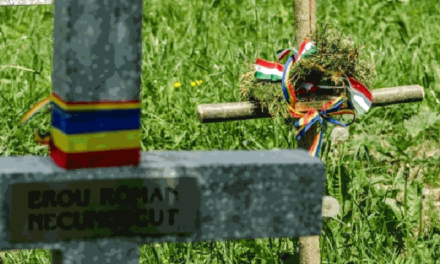The Hungarian grand strategy should not start from little Hungary.
Within the foreseeable future, all the support that serves the stability and flexibility of Hungarian society, for example the family support system, must be extended in its entirety to the areas inhabited by Hungarians, even outside the country's borders - said Viktor Orbán in his presentation on the closing day of the 33rd Bálványosi Summer Free University and Student Camp . On the occasion of the Prime Minister's announcement in Tusványós, we summarize what the Hungarian family support system is all about, and what major obstacles should be overcome in order to extend the benefits to Transylvanian Hungarians, among others.

In the picture published by the Prime Minister's Press Office, Prime Minister Viktor Orbán gives a lecture at the 33rd Bálványosi Summer Free University and Student Camp at Tusnádfürdő in Transylvania on July 27, 2024. Next to him is Zsolt Németh, the Fidesz chairman of the Foreign Affairs Committee of the Parliament (b) and László Tőkés, the chairman of the Transylvanian Hungarian National Council (EMNT) (cover). MTI/Prime Minister's Press Office/Zoltán Fischer
The Hungarian grand strategy must not start from little Hungary: it must be based on a national basis, it must include all areas inhabited by Hungarians, and it must connect all Hungarians living in the world to itself - Viktor Orbán emphasized on the closing day of the 33rd Bálványosi Summer Free University and Student Camp, held at the end of July.
In his traditional presentation in Tusványós, the Prime Minister stated that only small Hungary is insufficient as a framework.
"That's why I don't dare to say the year right now, because it has to be respected, but within the foreseeable future all the support that serves the stability and flexibility of Hungarian society, for example the family support system, must be extended in its entirety to areas inhabited by Hungarians, even outside the country's borders . The direction is not bad, because if I break down the sums spent on these areas by the Hungarian state until 2010, I can say that we spent an average of 100 billion forints on this every year. By way of comparison, during the Gyurcsány government, 9 billion were spent in one year. Now we spent 100 billion on this in one year! So this is more than a tenfold increase”
– was the part of the speech concerning Hungarians beyond the border.
In addition to the countless supports that have already been implemented, the expansion of the family support system "in its entirety" to the Hungarian-inhabited areas outside the country's borders, which the Prime Minister put into perspective at Tusványos on July 27, is considered a major and important innovation. At the same time, Viktor Orbán already touched on the topic last year at the Tusnádfürdő Free University, in one of his answers to the questions of the camp residents.
"When and is it even possible to extend Hungarian family allowances to Transylvania? I think we may have expanded some of its elements. And I think that we will be able to reverse the painful demographic processes (…) and then reach the 2.1, which is necessary to maintain, if we have a unified family support system within the entire Carpathian basin. It's not impossible"
said the Prime Minister.
According to those who first need money: then they will be able to expand the family support system at home beyond the border "when things are going well".

In the photo published by the Prime Minister's Press Office, Prime Minister Viktor Orbán (back, right) gives a lecture at the 33rd Bálványosi Summer Free University and Student Camp at Tusnádfürdő in Transylvania on July 27, 2024. Next to him is Zsolt Németh, the Fidesz chairman of the Parliament's foreign affairs committee, and László Tőkés, the chairman of the Transylvanian Hungarian National Council (EMNT) (back, right). MTI/Prime Minister's Press Office/Zoltán Fischer
"Therefore, it will take a few more good years when the Hungarians at home also feel that there is actually truth in the fact that if we connect the Hungarian families across the border with the Hungarian families inside Hungary, and also connect their economic power, then something like that will come out of this. as a result of which in a few years we will all be doing well - declared Viktor Orbán.
This is a complex intellectual task. There are opponents on the field who, based on human envy, will always rebel against this, but this is possible. Quote I also encourage and invite the Hungarian organizations across the border to think about how, knowing their own legal system, it is possible to, say, somehow transfer the Hungarian tax relief to families, bring the baby loan, and create a mutatis mutandis local variant of the home creation system . So the plans should be ready in the branch, so that when the right moment of the economy comes, we can implement it."
This year, Viktor Orbán already included in his presentation the plan to extend the family support system in its entirety to Hungarians across the border, including Transylvania. But what does the family support system in Hungary consist of?
Help at every stage of life
According to representatives of the Budapest government, one of the most important features of this is that it is a lifelong support system, the Hungarian state provides help at all stages of life: young couples, those expecting children, families with children and the elderly. The more than 30 forms of family support were developed step by step by the government of Budapest in the last short decade and a half, and they are constantly being "fine-tuned".
The various subsidies and discounts can be grouped from several points of view. As summarized on a government website, these can be divided into two broad areas:
the benefits tied to the insurance relationship, and the benefits that are not related to it and are due to the subject right. Those who live and work in Hungary and pay social security contributions have an insurance and insured legal relationship; they have a national ID number, i.e. an official ID card confirming the social security identification number, which is used in the health, social, health and pension insurance systems.
The family support benefits linked to the insurance relationship include the baby care fee (Csed) , the amount of which is calculated based on the claimant's income and is paid for the duration of the maternity leave - for 168 days.
A child care fee (gyed) is provided to the parent from the day after the end of the czed until the child is 2 years old, and in the case of twins, until the child is 3 years old.

Photo: Pixabay
Family allowances as a matter of right
The scope of similar benefits that are not linked to the insurance legal relationship, i.e. are subject to the right of the subject, is wider. This includes maternity support, family allowance, childcare support and child-rearing support. At the same time, in addition to several other criteria, it is also an essential condition here for persons with (also) Hungarian citizenship that they live in Hungary (residence, place of residence, accommodation notifier), this must be proven primarily with a residential address card.
The maternity allowance is a one-time benefit, the amount of which is HUF 64,125 per child (1 lei 79 HUF), in the case of twins it is HUF 85,500.
The family allowance serves as educational allowance and schooling support, HUF 12,200 per month for one child, HUF 13,300 per child for two, HUF 16,000 per child for three or more children.
The child care support benefit (gyes) goes to those who cannot receive czeds or gyeds, i.e. they are not insured; the monthly amount is HUF 28,500, it is usually transferred until the child turns 3.
The child-rearing allowance (gyet) is granted from the youngest child's 3rd birthday to his 8th birthday, provided that the beneficiary is raising 3 or more minor children in his own household. The monthly amount of the nursery school - regardless of the number of children - is HUF 28,500.

Folk singers for Minorities - the XXIV. Csángó at the ball in Millenáris Park building B on February 22, 2020. Photo: Balázs Mohai / MTI
Comprehensive help
In addition to those listed, there are more than two dozen forms of family support. Discounts for creating a family home, known as "chocolate" are extremely popular; On January 1, 2024, the metropolitan chocolate was introduced, currently the so-called village chocolate and chocolate plus can be applied for.
The csok plus home creation scheme helps married couples who have children - under certain conditions - with an extremely discounted, state-subsidized loan, which can be applied for in the amount of HUF 15 million in the case of one child, HUF 30 in the case of two children, and up to HUF 50 million in the case of three or more children , with a maximum interest rate of 3%.
The village tax is a non-refundable subsidy similar to the old tax, but it can only be claimed by residents of the so-called preferred small settlements for house building, apartment purchase, and modernization. For one child, HUF 4 million, for two children, and HUF 15 million for three or more children.
baby support is also a big help , thanks to which couples can get up to HUF 11 million in interest-free, free-to-use loans if they agree to have a child in the next 5 years. After the birth of the first child, repayment of the loan is suspended for 3 years, and they become entitled to interest-free repayment for the entire term, for the second child, it does not have to be repaid for another 3 years, and 30% of the remaining debt is forgiven by the state, and for the third child, the entire remaining amount released by the state.
But subsidies for reducing credit debt . For example, families with several children can live with a mortgage loan waiver: upon the birth of the second child, they can ask for HUF 1 million to be waived from their debt. The third child can already reduce the debt by HUF 4 million. At the same time, expectant mothers can request the suspension, reduction or forgiveness of their existing student loans.
The start-of-life support for young people is well-known, i.e. the baby bond , through which the one-time support of HUF 42,500 is deposited into a deposit account, which bears interest at the same rate as inflation, until the child is 18 years old. Parents can increase the amount by opening a Treasury Start securities account. As additional support, the state credits 10 percent of the annual payment, but no more than HUF 12,000, every year after the payments. This may also sound familiar in Transylvania, since from 2018, two of the family support benefits became available to Hungarians living outside the administrative borders of Hungary: the baby bond and the above-mentioned maternity support through the Umbilical Cord Program .

Photo: Pixabay
Tax exemption, credit discount in another country?
In addition, thanks to the Hungarian family support system, those starting a family are entitled to numerous tax, levy, fee and contribution discounts, as well as personal income tax exemptions. However, their cross-border enforcement may encounter great difficulties precisely because, for example, Transylvanian Hungarians pay taxes not in Hungary, but in Romania.
Experts who spoke on the subject in the Hungarian – mainly opposition – media drew attention to the fact that
Budapest wants to provide tax benefits and housing loans in the territory of other sovereign states, which cannot be implemented without the consent and cooperation of the other country, the local authorities and financial institutions. At the same time, it is difficult to conduct them in such a way that the ethnic discrimination often mentioned by the representatives of the majority nations in the case of previous subsidies does not arise again.
Thus, many people consider the full extension of the family support system unthinkable, but the gradual availability of certain elements, such as the family allowance, is practically feasible according to them. Not forgetting the fact that, for example, in the Motherland, through a program in Hungarian, education and training support in the mother country is already paid out. At the same time, there is another possibility: to initiate and pass new laws on the Hungarian model in the parliaments of the respective countries, including Romania.
Featured Image: Pixabay













